The paver operator is responsible for the paver itself; the paver is his tool and it's his responsibility to make sure his tool is in the best working condition possible. The operator should look at the paver as two pieces of equipment: the tractor that motorizes the paver and the screed, which is attached to the tractor.
So to start the day the operator should conduct a walk around the paver. Start with the front of the paver, checking the hopper to make sure there's no old material clinging to the sides or corners. Operate the hopper up and down and check to make sure the hydraulic valves are tight as sometimes the pins can get loose.
Look at the push rollers to make sure they are clean of asphalt. The rollers come in contact with the haul truck's tires and if the rollers aren't clean you'll have "chatter" from the rollers, which will show up in the mat until the old asphalt falls off and the rollers are free and clear. To make sure the rollers are operating freely push them and slide them left and right to make sure they move easily. Also turn the augers and conveyors on, raise and lower the screed, and run the extensions. You don't want to pull up on a job and dump a load of mix into the hopper only to find out the conveyor or augers aren't working.
Get on your hands and knees and look at the conveyor to make sure there's at least 5 inches clearance above the ground. Conveyor chains stretch as they wear and you don't want the conveyor to hit a manhole or anything else rising out of the pavement. Check to make sure tracks are tight, that you have proper tire pressure, look for wear and tear on electrical wiring, keep an eye out for flaked paint which might indicate a pinch point, and then check with the screed operator to make sure he's done all his checks.
Check fluids. Basic stuff, sure, but it's so basic it often gets overlooked. Check the oil when the engine is cold, check the hydraulics, "the bloodline of the machine," when the engine is hot (hydraulics expand as they warm up so let the engine warm up for at least 10 minutes to give the hydraulic fluid time to warm up and circulate), check the radiator fluid, and check the fuel.
Check the battery charge. If the battery is not well charged it won't provide the 13-14 volts to make everything in the electrical system work properly.
At the end of the day, idle the engine for three minutes before shutting it down. Don't pull up and just shut the engine off from 2,100 rpm to zero. Those three minutes give the oil, hydraulics, turbine, everything time to come back to normal.
Make sure that along with the laborer and the screed operator you clean your paver. Start in the front and clean the push rollers, the hopper, the augers, flow gates, conveyor, conveyor chain, and screed. Open and clean extensions all the way, check for electrical problems, and fluid leaks. When you're all done hang the screed from the cables, don't rest it on the ground because if it's hot it will pick up all the debris on the ground and it will be hard for you to get that off when it's cold in the morning.
To learn what else the paver operator is responsible for on a paving crew. Check out "The Time Clock" article in the February 2009 issue of Pavement Maintenance & Reconstruction.




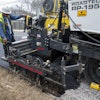
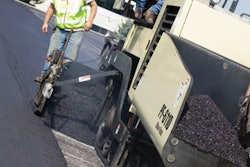
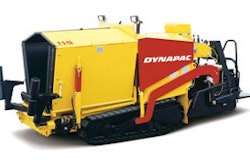
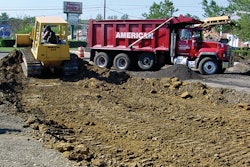
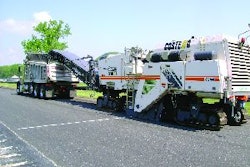

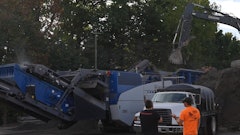




![Lee Boy Facility 2025 17 Use[16]](https://img.forconstructionpros.com/mindful/acbm/workspaces/default/uploads/2025/09/leeboy-facility-2025-17-use16.AbONDzEzbV.jpg?ar=16%3A9&auto=format%2Ccompress&fit=crop&h=135&q=70&w=240)




